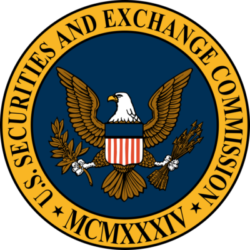
Mark Lewton Hopkins of Grand Blanc Michigan a stockbroker formerly registered with American Portfolios Financial Services has been charged by Securities and Exchange Commission (SEC) with misappropriating $1,150,000.00 from customers who held accounts at American Portfolios Financial Services. SEC v. Mark L. Hopkins Case No. 20-cv-11980 (July 24, 2020).
According to the Complaint, in 2017, three American Portfolios Financial Services customers had been pitched an investment opportunity by Hopkins. This opportunity supposedly involved them placing funds into a local credit union that was opening a new office. The Complaint alleges that one of the customers who he targeted was an 87-year-old individual. Individuals were apparently told that their investment through Hopkins would be short-term and would pay between six and seven percent. They allegedly agreed to move forward with the opportunity, providing Hopkins with $750,000.00 in funds.
The regulator alleges that there was no program in existence at the time that Hopkins pitched this opportunity to the customers. SEC accuses him of placing investors’ funds into a credit union account under his control and then misappropriating the funds. The regulator also contends that he gave customers fake account statements so that he could conceal his activities.
The Complaint additionally alleges that in May of 2018, two more customers had been approached by Hopkins for purposes of investing in the program that did not exist. Those customers were apparently told that they would earn between six and seven percent profit within about nine months. Hopkins supposedly got those investors to allow him to sell their securities and to transfer $400,000.00 from their accounts into the account that was under his control at the credit union.
SEC indicates that American Portfolios Financial Services detected Hopkins’s activities involving those customers. He was told to return their money. The stockbroker apparently responded by providing customers with a fake $400,000.00 check and by asking them to sign a document evidencing that he repaid them. Those customers allegedly grew concerned about Hopkins as they had not provided with any account statements concerning their investment through the credit union. When they expressed this concern, the stockbroker purportedly responded by providing them false credit union account statements reflecting their investments. SEC indicates that the stockbroker stopped responding to customers’ requests.
SEC contends that one or more investors has not been provided any return of their investment. SEC alleges that Hopkins misappropriated funds in violation of Securities Act of 1933 Section 17(a)(1), 17(a)(2) and 17(a)(3). The regulator also alleges that Hopkins committed fraud in violation of Securities Exchange Act of 1934 Section 10(b) and SEC Rule 10b-5.
Hopkins has been barred from associating with any Financial Industry Regulatory Authority (FINRA) member in any capacity based on findings that he failed to comply with FINRA’s requests for his documentation and information during its investigation into accusations of his use of customer funds for outside investments and for Hopkins’s failure to report outside business activities. Letter of Acceptance Waiver and Consent No. 2018060968101 (May. 15, 2019). Hopkins violated FINRA Rules 2010 and 8210.
FINRA Public Disclosure confirms that Hopkins has been referenced in two customer initiated investment related disputes concerning allegations of his misconduct while employed by American Portfolios Financial Services. On March 25, 2019, a customer filed an investment related complaint regarding Hopkins’s activities where they requested $400,000.00 in damages based upon accusations that he solicited their funds for outside investment transactions and had altered documents. Another customer initiated investment related FINRA securities arbitration claim involving Hopkins’s conduct was settled for $175,000.00 in damages supported by allegations of him selling away from APFS and misappropriating funds. FINRA Arbitration No. 19-01961 (Sept. 28, 2020).







